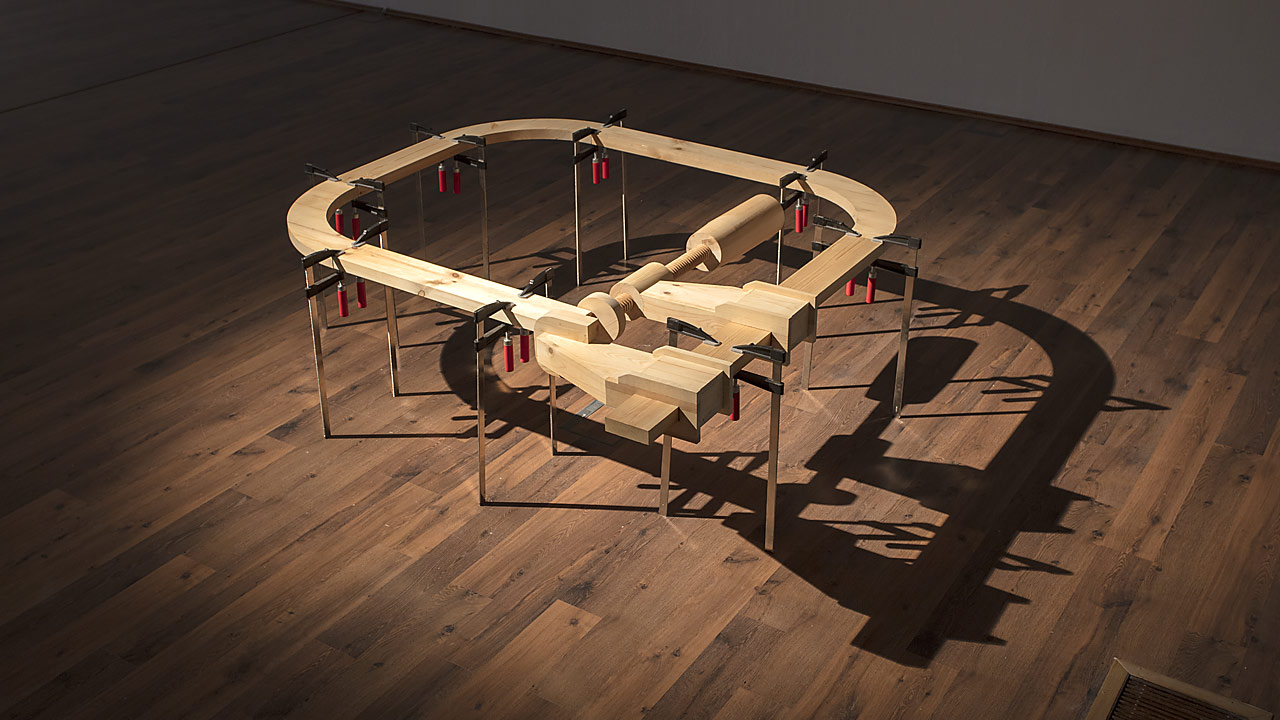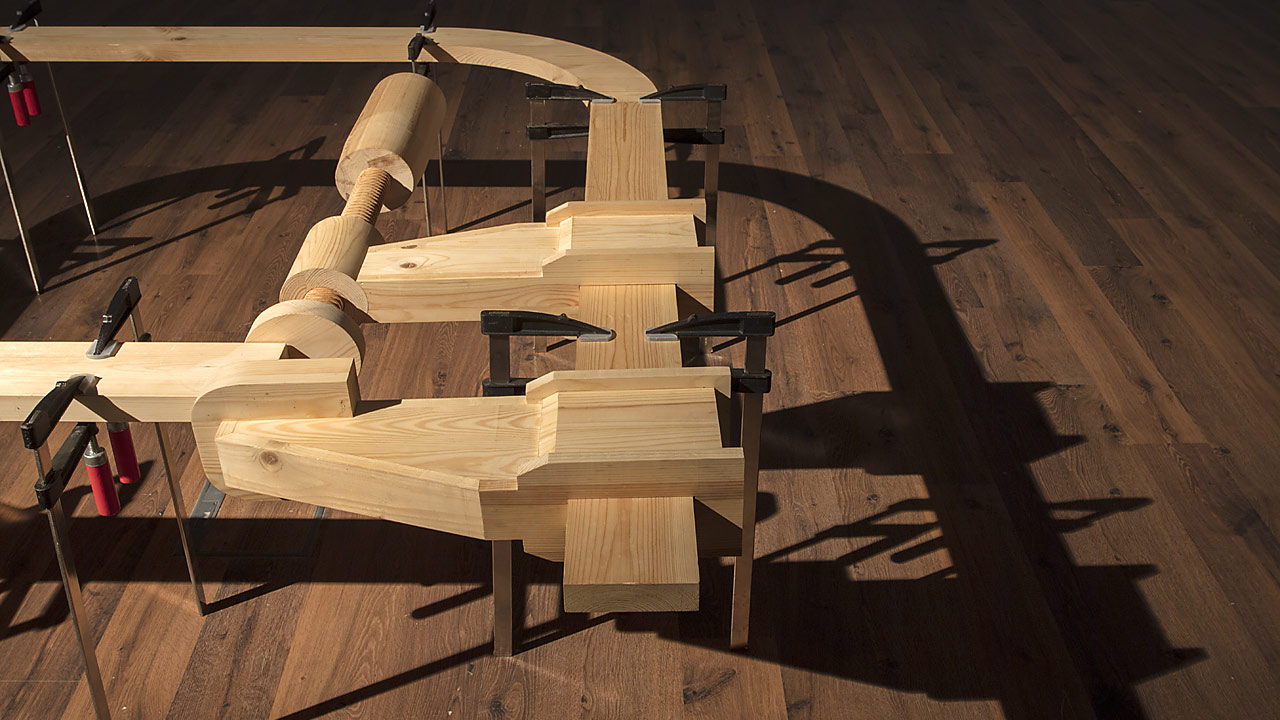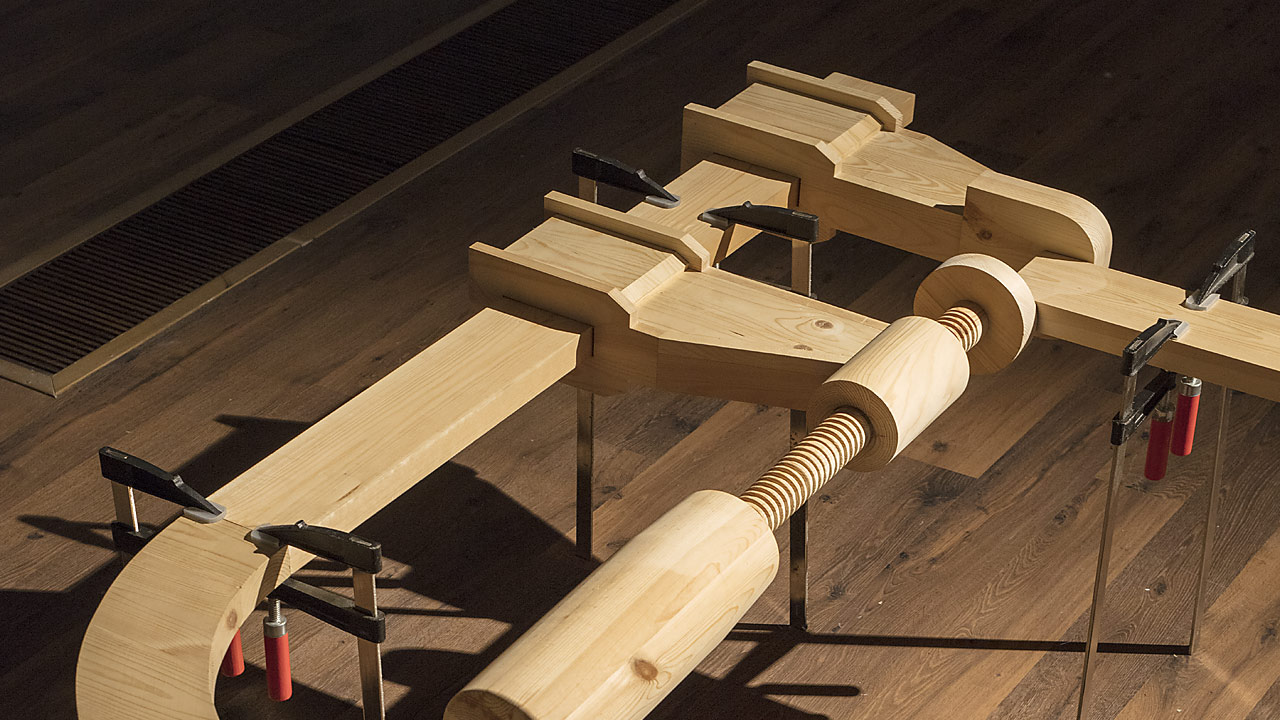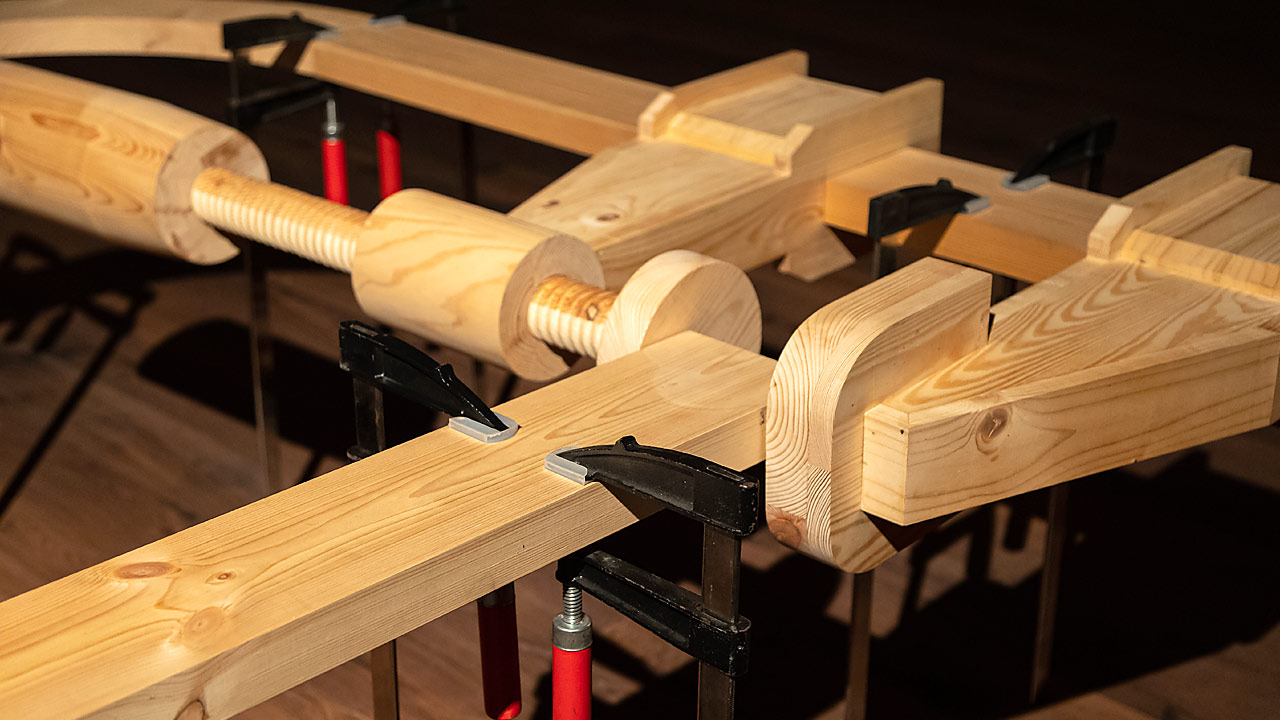Ouroboros
Genre: installation
Date: 2022
Size: ~ 250 x 250 x 70 cm
Materials: wood, bar clamps
Location: MODEM Modern and Contemporary Arts Centre, Debrecen, Hungary
Photo: Dávid Biró
OUROBOROS
According to Isaac Newton’s calculations, the year of the Apocalypse is 2060.
I would be 100 years old by then.
However, the Apocalypse described in the Book of Revelation is not completely unambiguous – at least in regards of the definitiveness of this ending of the world. The text states that in the moment of the Apocalypse, everything that existed will be annihilated. But concurrently, Christ will return to the earth to reign for one thousand years. Thus the world will not exactly end – it will just start all over again. That will be another world, better and happier than this one. But it raises the question, of course: If everything that existed until then perishes, who will be those lucky ones enjoying the beatitude of Jesus Christ?
Apparently, Newton somehow came to terms with the issue that in the moment of the Apocalypse, instead of God himself, Christ would come to the earth whose divine nature he had been firmly denying for long. It feels liberating that even Newton could not resolve every single contradiction he had. He could not exempt himself from them. Indeed. He might have accepted the contradiction as being the final truth of the Lord. Along with this, he exchanged the controversial linearity of time for temporal circularity. It is nice to think about that there will be something after the end, and that there still is some kind of future.
So Ouroboros can calm down, and carry on existing as a zoomorphic version of the circle and the incarnation of the infinity and perpetuity; the shape of temporal circularity, eternal return, and the consubstantiality of all dualities – and also remain intact as the utopian picture of having neither beginning nor ending. Like an esoteric DNA formula.
But until then, I am waiting for the spring.
And I am waiting for me to come with a balanced, contented and optimistic gait on the way. I suspect however that the more I am looking forward to me, the less probable I will be happening, and I might not come true ever. I will not be realized. I cannot go forward to meet me, I cannot make me happen or create me; just like Ouroboros.
We will see. Maybe when the summer comes.
*********
UROBOROSZ
Isaac Newton kiszámolta, hogy az Apokalipszis dátuma: 2060.
Akkor lennék 100 éves.
A Jelenések könyvében leírt Apokalipszis azonban nem teljesen egyértelmű – legalábbis ami a világ végének véglegességét illeti.
A szöveg szerint az Apokalipszis pillanatában minden, ami addig volt – elpusztul. De ezzel egyidejűleg Krisztus is visszatér a földre, hogy elkezdje ezeréves uralkodását. Ezek szerint a világnak mégsem lesz teljesen vége – csak újrakezdődik. Egy másik – a mostaninál jobb és boldogabb világ lesz. Kérdés persze, hogy ha minden addigi elpusztul – kik lesznek majd azok a szerencsések, akik élvezhetik az ezer évig tartó krisztusi boldogságot?
Úgy tűnik, hogy Newtonnak valahogy sikerült belenyugodnia abba, hogy az Apokalipszis bekövetkeztekor nem Isten jön el a földre, hanem Krisztus, akinek isteni mivoltát sokáig határozottan tagadta. Felszabadító érzés, hogy még Newton sem tudott feloldani minden ellentmondást. Ő sem tudta ellentmondás-mentesíteni magát. Sőt. Az is lehet, hogy az ellentmondást fogadta el, mint a végső, isteni igazságot. Az idő ellentmondásos linearitását pedig felcserélte annak körkörösségével. Jó arra gondolni, hogy a vég után is lesz még valami. Hogy lesz valamilyen jövő.
Így aztán – Uroborosz megnyugodhat. Tovább létezhet, mint a kör zoomorfizált változata, mint a formát öltött végtelenség és örökkévalóság. Mint az idő ciklikusságának, az ismétlődésnek és a dualitás egységének alakja. És sértetlen maradhat – a nincs kezdet és nincs vég utópiájának leképeződéseként is. Mint valami ezoterikus DNS-képlet.
Én addig is várom a tavaszt.
És várom magamat is – kiegyensúlyozott, elégedett és bizakodó léptekkel jönni az úton. Bár sejtem, hogy minél inkább várom magam, annál valószínűbb, hogy nem jövök, nem következek be, és nem valósulok meg. Nem jövök létre. Nem tudok saját magam elébe menni, nem tudom bekövetkeztetni és nem tudom létrehozni magamat. Úgy, mint Uroborosz.
Talán majd, ha itt lesz a nyár.



